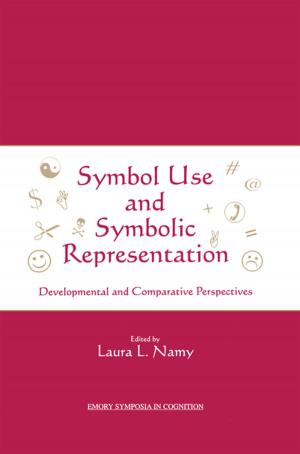The exploring mind. Natural logic and intelligence of the unconscious
Nonfiction, Health & Well Being, Medical, Specialties, Internal Medicine, Neuroscience, Psychology, Cognitive Psychology| Author: | Mauro Maldonato, Alfonso Montuori, Silvia Dell'orco | ISBN: | 9788868550547 |
| Publisher: | Mauro Maldonato | Publication: | June 11, 2013 |
| Imprint: | Language: | English |
| Author: | Mauro Maldonato, Alfonso Montuori, Silvia Dell'orco |
| ISBN: | 9788868550547 |
| Publisher: | Mauro Maldonato |
| Publication: | June 11, 2013 |
| Imprint: | |
| Language: | English |
In the last few years, the development of non-invasive research techniques that explore cerebral functions has not only increased our knowledge on the correlations between mental processes and cerebral structures, but it has fed our hopes for the possibility of facing the ancient and elusive question about the mind–brain relationship with a new way of thinking.
Science has always faced the problem of consciousness. Consciousness differs radically from the ordinary objects researched by science: not only because of the complexity of the neural infrastructures which are at its base or because of the subtle connections between these infrastructures and phenomena such as decision making, morals and artistic creativity, but above all because of that which gives life to the qualitative dimension and to the subjectivity of its states.
Humankind’s singular ability to make decisions has allowed human beings to face innumerable environmental challenges and complex evolutionary dynamics. Environmental pressures are not so urgent anymore, comparing to our ancestors. Nonetheless, the number of decisions that contemporary humans are called to make is very high. During the last three centuries, the change from normative to descriptive theories, from formal to natural logic, from substantive to limited rationality has allowed us to explain how many of the decisional strategies are coherent with the functioning of the cognitive economy of our species, even if they are limited and fallible.
In the last few years, the development of non-invasive research techniques that explore cerebral functions has not only increased our knowledge on the correlations between mental processes and cerebral structures, but it has fed our hopes for the possibility of facing the ancient and elusive question about the mind–brain relationship with a new way of thinking.
Science has always faced the problem of consciousness. Consciousness differs radically from the ordinary objects researched by science: not only because of the complexity of the neural infrastructures which are at its base or because of the subtle connections between these infrastructures and phenomena such as decision making, morals and artistic creativity, but above all because of that which gives life to the qualitative dimension and to the subjectivity of its states.
Humankind’s singular ability to make decisions has allowed human beings to face innumerable environmental challenges and complex evolutionary dynamics. Environmental pressures are not so urgent anymore, comparing to our ancestors. Nonetheless, the number of decisions that contemporary humans are called to make is very high. During the last three centuries, the change from normative to descriptive theories, from formal to natural logic, from substantive to limited rationality has allowed us to explain how many of the decisional strategies are coherent with the functioning of the cognitive economy of our species, even if they are limited and fallible.















